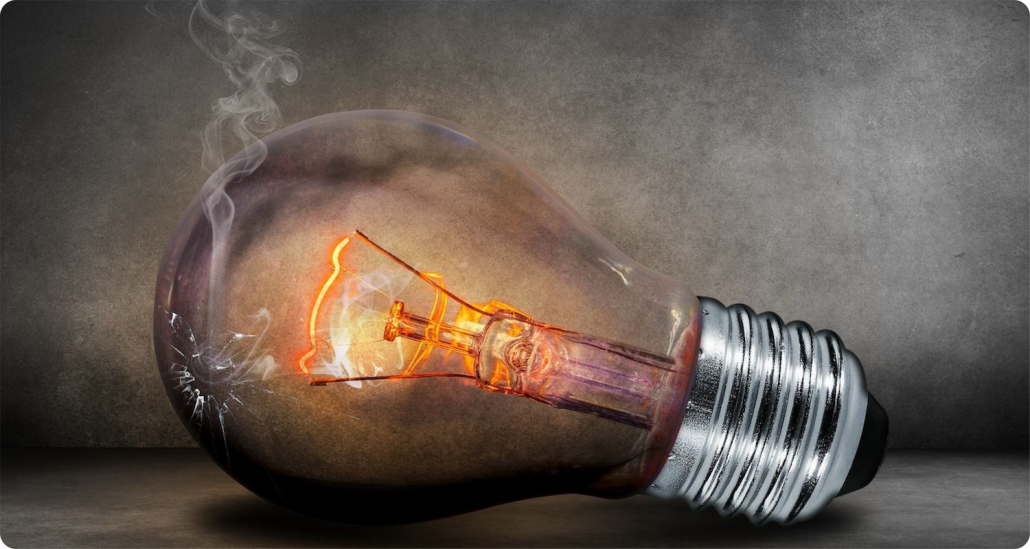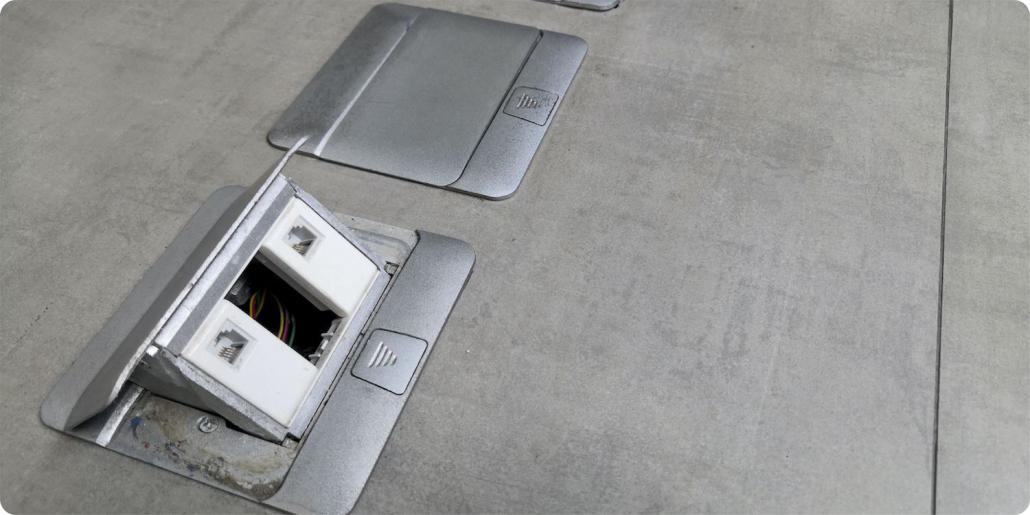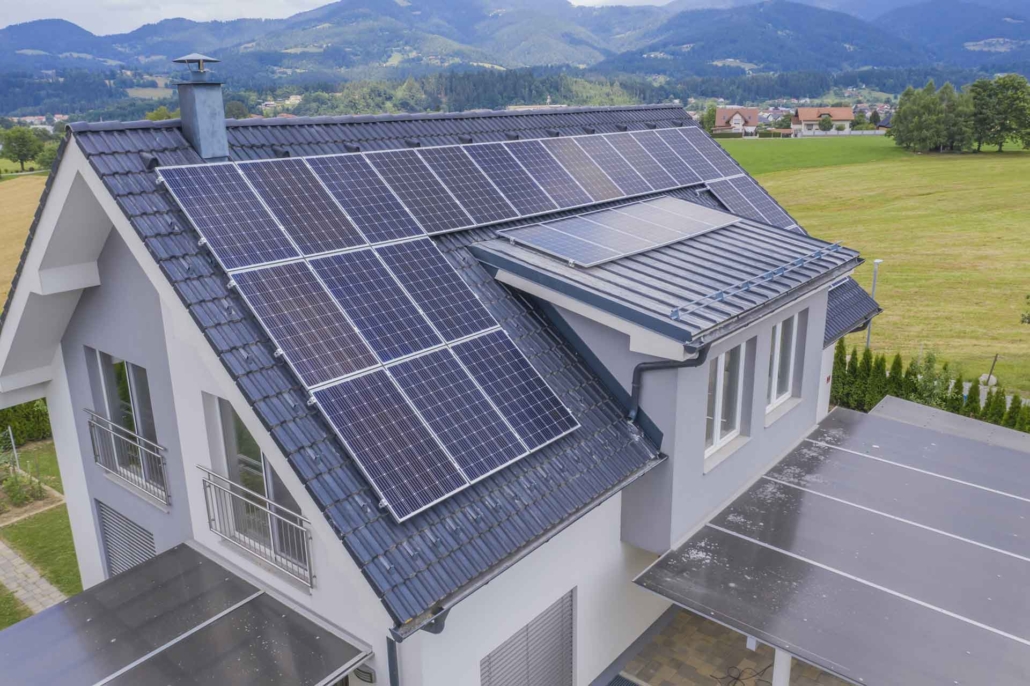August 12, 2020 | Cristina Dinulescu
A report from the US Consumer Product Safety Commission states that, every year, approximately 31,000 household fires are generated by electrical causes. Over 180 of these fires involve electrocution or other electricity-related incidents, most of which could be easily avoided by practicing electrical safety.
The CPSC also offers specific guidelines for electrical fire prevention, most of which are simple, easy to follow electrical safety tips. While it’s always a good idea to ask a professional electrician whenever you are uncertain about the safety of electrical appliances, devices or outlets in your home, you can also learn how to prevent electrical fires with the tips below to keep yourself, your house and your family safe.
1. Always Hire Professional Work
Many people think changing an outlet, an old fuse box or even a panel is not that complicated and try to save money by completing the work themselves. However, electrical safety is not where you want to skimp, so always have all electrical work done by a qualified electrician.
Moreover, if you’re buying a house or you’re remodeling your home, be sure to have an electrical inspection performed by a licensed and experienced electrician as well. This will also ensure that your electrical system is in accordance with local requirements.
2. Use Appliances Correctly
It’s not a good idea to have major appliances, such as washers, dryers or refrigerators plugged into extension cords. Always plug them directly into a wall receptacle outlet. Microwaves, AC units and stoves are also considered major appliances.
If possible, try to use only one heat-producing appliance plugged into one receptacle at a time. These refer to toasters, coffee makers, space heaters, etc.
3. Use AFCIs & GFCIs
Arc-fault circuit interrupters and ground-fault circuit interrupters should be used accordingly depending on the application and the space. Both types help prevent electrical fires and are good for ensuring electrical safety at home.
- AFCIs are great for living rooms, dining rooms and bedrooms. They shut off electricity and protect the branch circuit wiring from dangerous arcing faults that could initiate electrical fires.
- GFCIs are ideal for kitchens, bathrooms, basements and garages. They help reduce the risk of shock by shutting off the electrical circuit when detecting a hazard. Ground-fault circuit interrupters should also be used for all outdoor receptacles.
4. Test Regularly
You’ll be able to find more information on testing your circuit interrupters in the manufacturer’s manual and recommendations, but it is a good idea to test AFCIs and GFCIs monthly. Electrical fires are not necessarily started with a flame, but merely heat buildup close to inflammable objects. Think of a hot bulb next to a curtain, or a hot cord placed under a carpet. By testing your circuit interrupters regularly, you make sure that they function properly and shut off the circuit when identifying a problem.
5. Never Overload Your Circuits
Too many items plugged in at once will overload your electric outlets. This is one of the most common causes of electrical problems. You can easily check that all outlets in your home are cool to the touch, but you should also have protective faceplates and ensure they’re working properly.
The Electrical Safety Foundation International provides electrical safety tips specifically for outlets:
- Don’t use multi-outlet converters for appliances;
- Plug only 1 heat-producing appliance in any one outlet at a time;
- Have a qualified electrician check hot outlets;
- Use smart plugs to monitor outlet power loads;
- Use smart plugs to shut off appliances in case of overheating.
6. Replace Damaged Cords
Check your power cords, as well as extension cords, regularly, as these can pose a serious danger if they’re damaged. They can lead to both electrocution and electrical fires. You should look for signs of cracking or fraying, and if these are noticed, repair or replace the cords as soon as possible.
You should also avoid stapling power cords into place or running them under furniture or rugs. Not only will they pose a tripping hazard, but they could also overheat when under a thick rug. If placed under furniture, you run the risk of it crushing the insulation and damaging the wires.
As mentioned above, extension cords are also not a good idea when used in excess. If you find that you need multiple extension cords, then that means you don’t have enough outlets in your home to meet your requirements. Have an electrician come and install new outlets throughout the house.
7. Use Correct Wattage in Fixtures & Appliances
Using correct wattage is one of the easiest ways to ensure electrical safety at home. You can start by checking your light bulbs, to make sure they have the right number of watts, which you can usually find on the sticker.
After you’ve checked your lamps and fixtures, move on to appliances. There should be labels or stickers on all of them to show what the correct wattage is. If lighting fixtures don’t have it listed, go for 60-watt bulbs or less. If it’s ceiling fixtures, go for 25-watt bulbs.
8. Keep Water Away
It’s a well-known fact that electricity and water don’t mix. This is why you see warnings everywhere about not using hair dryers in or near the bathtub or the sink. It’s very important to keep electrical equipment dry, as well as away from water environments. These include sinks and showers obviously, but also plant pots, aquariums and so on.
This will not only keep you safe from electrocution or other injuries, but it will also prevent damage to the appliances. In fact, when working with electrical devices, it’s important to have dry hands.
Practice Common Sense
While the tips above will help you ensure electrical safety in your home, there are also other things you can do to be extra safe. When it comes to electricity, it’s always good to practice common sense and never stick your fingers, or other objects, into electrical outlets for instance.
If you notice sparks or appliances not working properly, unplug them immediately. Also unplug them if you’re cleaning or repairing them. On the same note, you should unplug your toaster when removing stuck food. When unplugging from the wall, pull on the plastic housing of the plug, never pull on the cord.
In addition to the tips and guidelines above, you can always refer to this checklist from the National Fire Protection Association.
The right electrical upgrade can dramatically improve the value and appearance of any home or business. You’ll be amazed at what a difference the right electrical upgrade can make for your home or business. Make sure that when you select an electrical company to do the enhancement of your home and you have decided to take your enhancement to the level where you require an electrical upgrade that the technician at the company has a good working knowledge and the experience to properly guide you in this area.
When you decide to upgrade, our well-trained and certified electricians have all the experience and training needed to complete your electrical panel upgrade project from start to finish, with a minimum of fuss or disturbance. Please contact us right away at 310-800-2401









